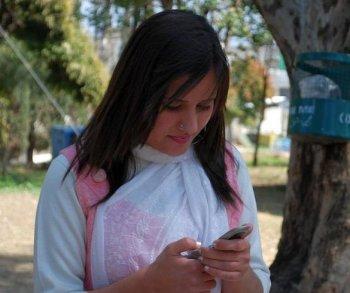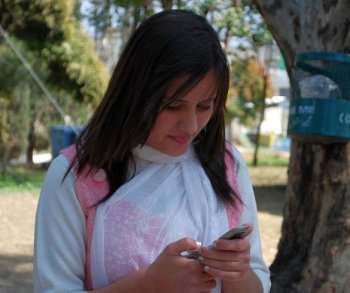Cell Phones Create Secret World of Taboo Exchange in Pakistan
Beneath an external veneer of piety and religious fervor in Pakistan, lies a world of desire whose craving people are trying to fill via cell phone.

A 21-year-old university student texting during a break in her schedule. The Epoch Times
|Updated:






